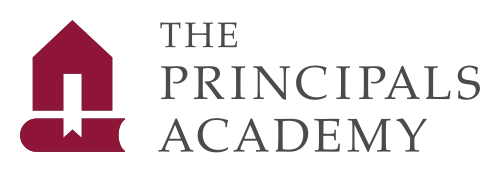Although the pandemic has seriously affected communities in general and schools in particular, we’re still learning about its huge impact on so many aspects of our roles as principals. What has become a vital part of the principal’s responsibility is the mental health of the school’s stakeholders.
The country’s health resources have been prioritised for fighting the pandemic. Mental Health, which, earlier commanded only 5% of the health budget, has, like other disciplines, been severely affected by the crisis. I’m not qualified to comment on any medical issue, but I simply want to support principals in raising awareness and making classrooms and staff-rooms warm, welcoming, and caring spaces which provide learners and teachers with some solace, sensitivity and understanding.
And it’s not just the pandemic. Principals will testify to the textbook case of chronic stress which is best described as a weight which children carry with them and can’t put down. It’s the unemployment and poverty, the daily hardships, and the neighbourhood gangsterism – the significant suffering which seriously affects schools in underserved areas. The mental health of learners, teachers and principals has become a local school issue – a huge one. And as always, like the Mom in the Family, the principals are the lead-solvers in this crisis.
Medical professionals should be treating depression, anxiety, and post-traumatic stress disorder – so prevalent among us all – but many hospitals and clinics have very limited or no mental health practitioners. In any event, fearful people stay away from health services at this time.
What can schools do? They can make their staff fully aware of these challenges and work to foster meaningful relationships between staff and learners. The current alternate day attendance reality is an opportunity for teachers to better interact with learners as individuals and to teach coping strategies. Schools can work closely with the WCED’s existing social services; they can try to access any official free care available and develop public private partnerships with hospitals, doctors, and psychologist practices. They can consult the many government and institutional websites which offer resource toolkits for teachers and parents.
All over the world we’re learning that the Covid-19 pandemic has made it harder for learners to learn. They’re often distracted by anxiety and have trouble concentrating or retaining new information or just remembering things. They feel tired. One high school Mathematics teacher, preparing learners for prelims, told me this week that ‘it feels that in some way they have got lazy’. These are critical issues, but they are best handled in the schools of principals who lead and in the classrooms of teachers who care.
In pre-pandemic times we would talk about a school being a haven for vulnerable learners where they could be safe as well as feeling that they belong, that they and their context are known, and that their efforts are recognised. Today principals are using a similar vocabulary in describing the caring climate they need to create for their teachers. Given the inequalities, the declining resources and the longstanding early backlogs in basic literacy and numeracy, teaching is a stressful profession. We need to accept that many employees in other sectors have been much more adversely affected. Principals who are changemakers know that wellness, openness, and gratitude work, but the very best medicine for teachers’ mental health is the development of a growth mindset towards teaching and learning. Those small wins crop up again and again.
Obviously, if the principal is responsible for the health of the school community, it would help if the principal were healthy. That’s challenge number one. You’ve certainly had enough practice in uncertainty, stress and trauma. The principal’s role is so complex right now. Perhaps it’s best to remember the age-old phrase ‘many hands make light work’. A fully functional leadership team – my colleague, coach Keith Richardson would add ‘with a very detailed organogram’ – makes for a good school and a healthy principal.
If you want further frightening detail and reason for developing a local school response, read:
Till next time.
Paul (Coach/Mentor)
Principals Academy
Keeping in Touch in Tough Times, #24 of 2021, 12 August 2021

